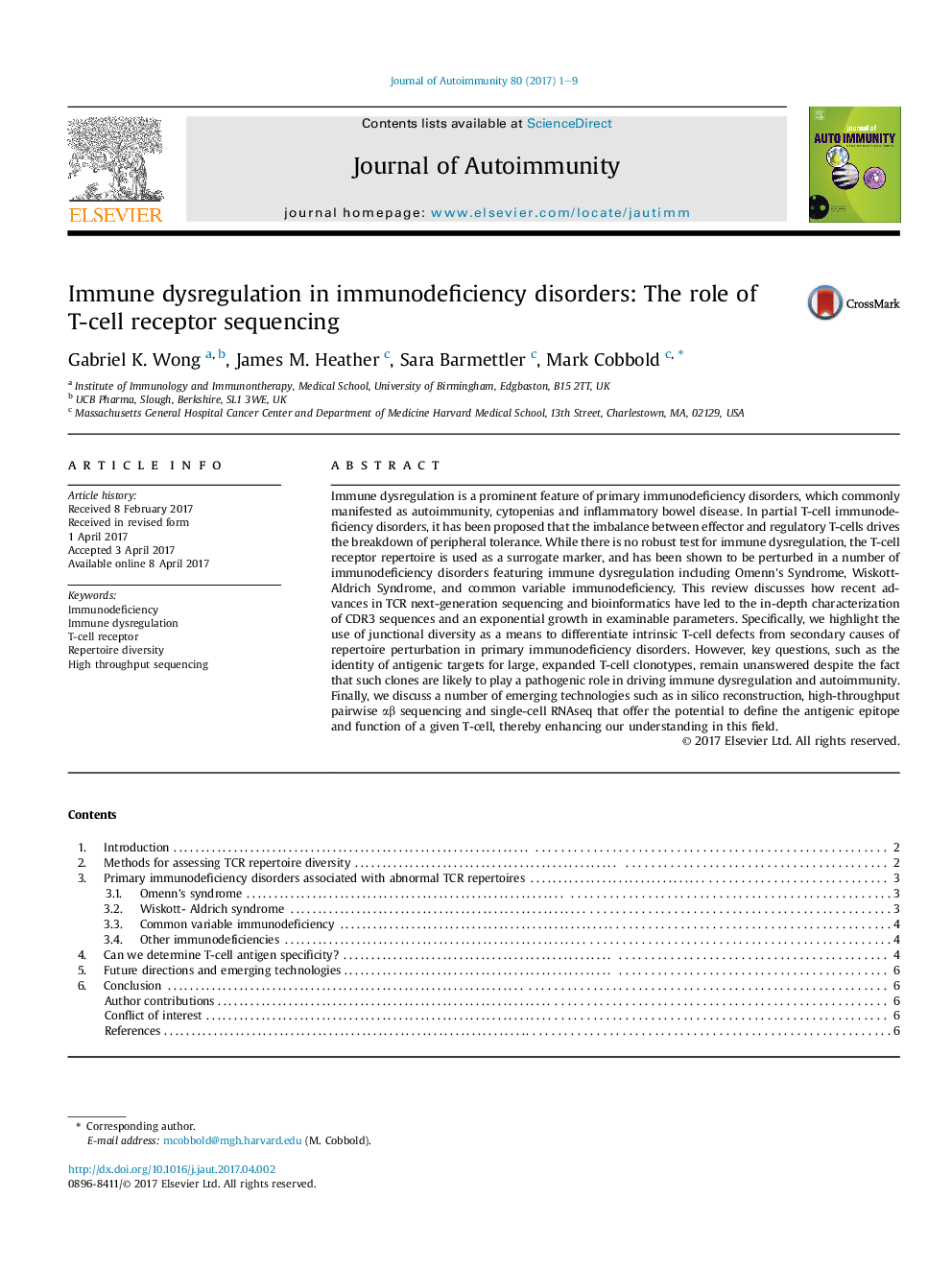| کد مقاله | کد نشریه | سال انتشار | مقاله انگلیسی | نسخه تمام متن |
|---|---|---|---|---|
| 5667825 | 1592269 | 2017 | 9 صفحه PDF | دانلود رایگان |

- HTS allows the TCR repertoire to be examined in greater detail.
- Repertoire perturbation mirrors the severity of underlying T-cell immunodeficiency.
- Defect in junctional diversity suggest an intrinsic defect in TCR generation.
- The antigenic targets for large clonotypes in immunodeficiency are not currently known.
- T-cell functions and αβ pairing can now be assessed using single-cell technology.
Immune dysregulation is a prominent feature of primary immunodeficiency disorders, which commonly manifested as autoimmunity, cytopenias and inflammatory bowel disease. In partial T-cell immunodeficiency disorders, it has been proposed that the imbalance between effector and regulatory T-cells drives the breakdown of peripheral tolerance. While there is no robust test for immune dysregulation, the T-cell receptor repertoire is used as a surrogate marker, and has been shown to be perturbed in a number of immunodeficiency disorders featuring immune dysregulation including Omenn's Syndrome, Wiskott-Aldrich Syndrome, and common variable immunodeficiency. This review discusses how recent advances in TCR next-generation sequencing and bioinformatics have led to the in-depth characterization of CDR3 sequences and an exponential growth in examinable parameters. Specifically, we highlight the use of junctional diversity as a means to differentiate intrinsic T-cell defects from secondary causes of repertoire perturbation in primary immunodeficiency disorders. However, key questions, such as the identity of antigenic targets for large, expanded T-cell clonotypes, remain unanswered despite the fact that such clones are likely to play a pathogenic role in driving immune dysregulation and autoimmunity. Finally, we discuss a number of emerging technologies such as in silico reconstruction, high-throughput pairwise αβ sequencing and single-cell RNAseq that offer the potential to define the antigenic epitope and function of a given T-cell, thereby enhancing our understanding in this field.
216
Journal: Journal of Autoimmunity - Volume 80, June 2017, Pages 1-9